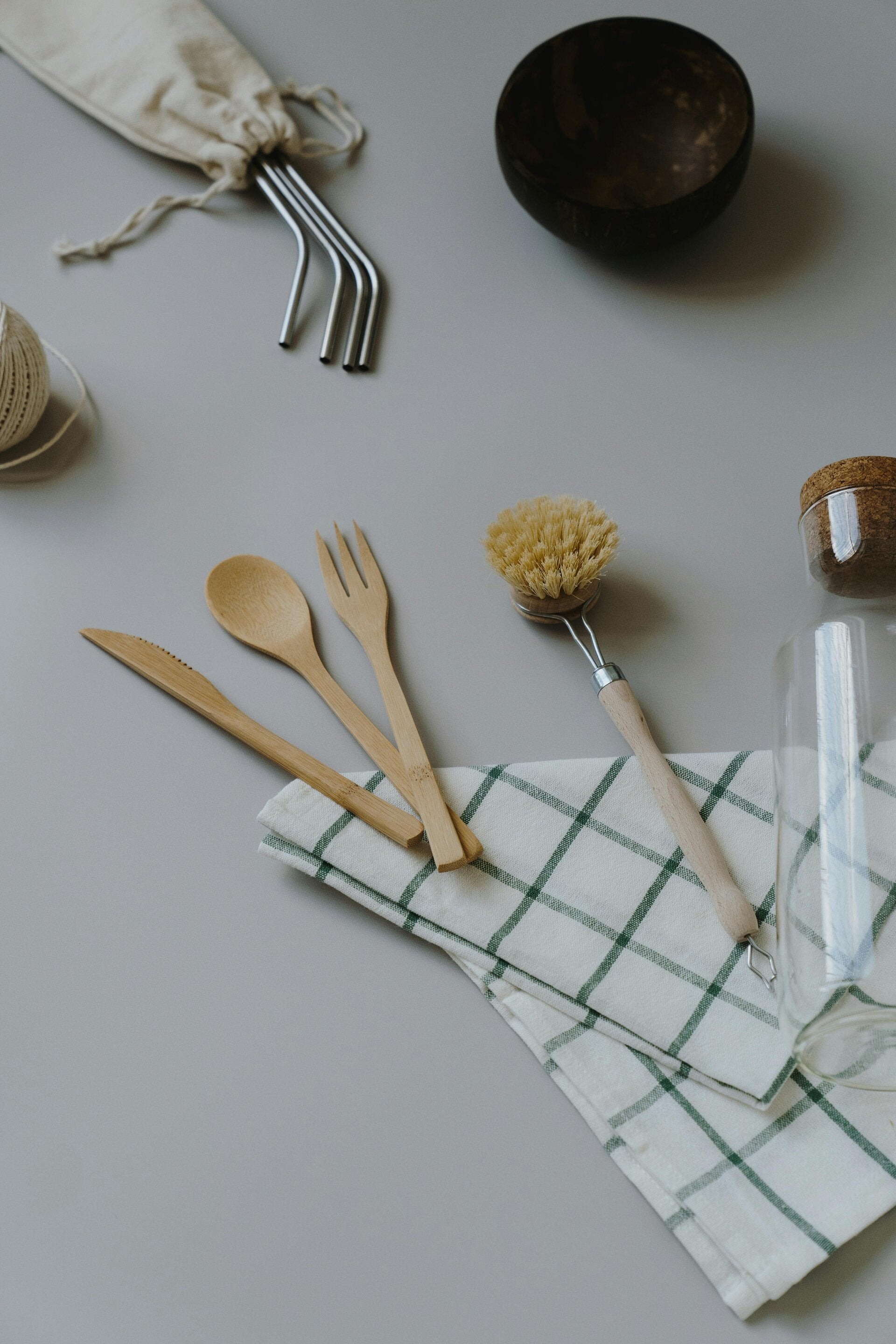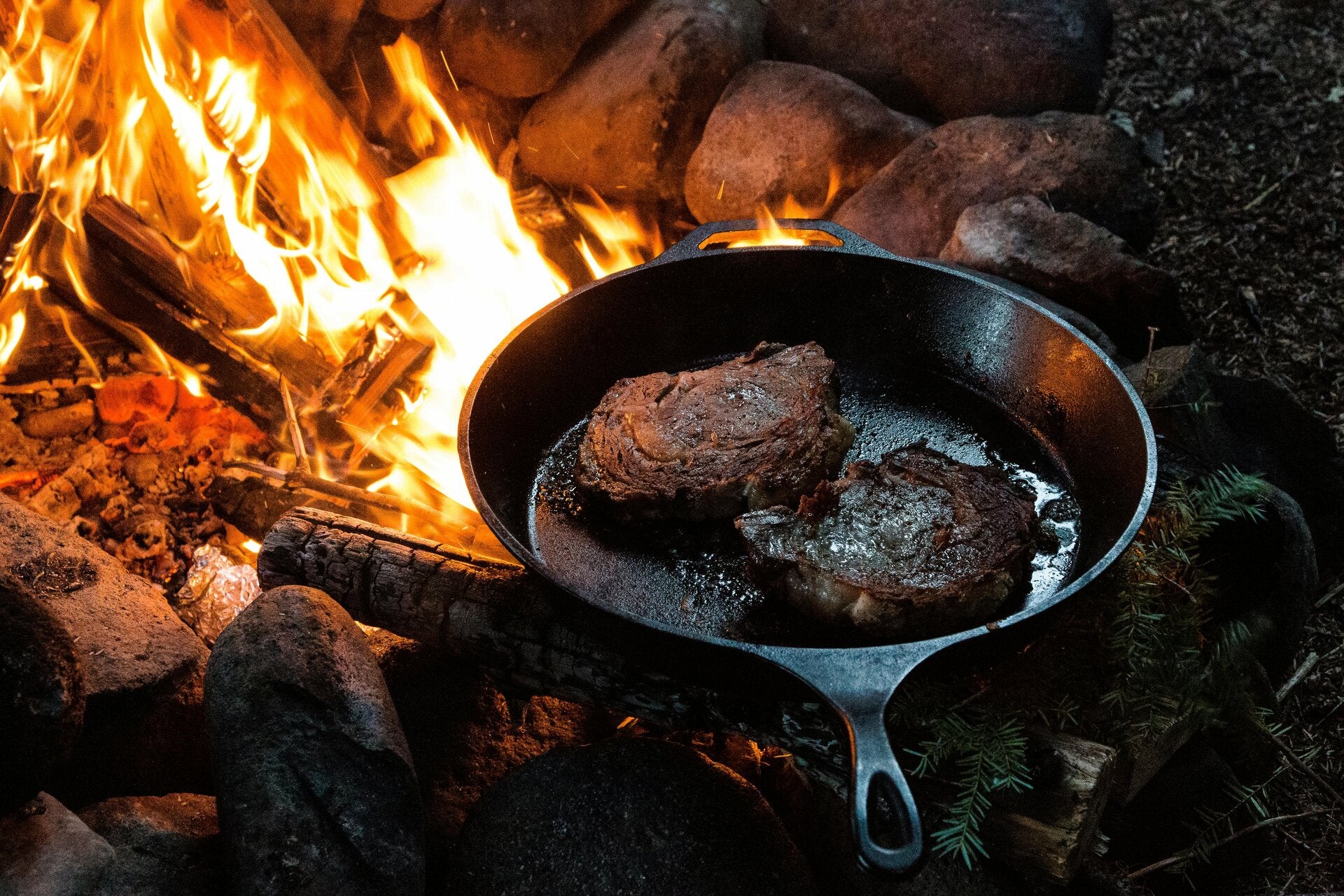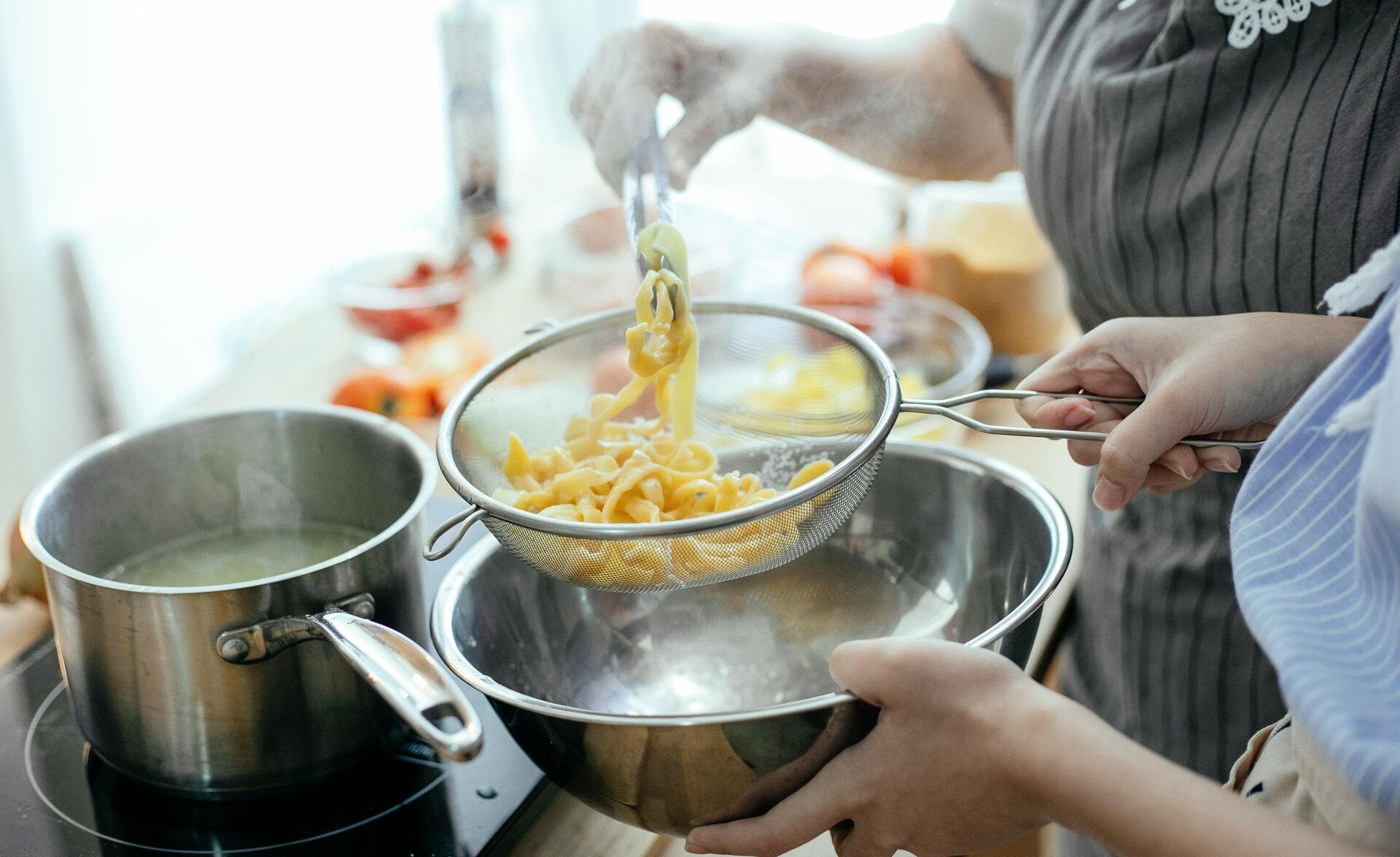The Hidden Toxins in your Kitchen
Your kitchen should be the heart of your home a place where meals bring comfort and warmth. But hidden in everyday products, from cookware to cleaners, are toxins we rarely think twice about. These chemicals can sneak into our food, linger on our dishes, and even affect the air we breathe. The good news? With a few simple swaps and some label awareness, you can create a healthier, safer kitchen space for you and your family.

Methylisothiazolinone is a common preservative found in dish soaps, hand soaps, and cleaners. It’s linked to allergic reactions, skin irritation, and potential neurological concerns with long-term exposure. Reading labels carefully and choosing MI-free alternatives is a simple swap that helps protect your health while keeping your kitchen clean.
Plastic utensils can release microplastics and chemicals especially when exposed to heat. Safer swaps like bamboo, wood, or stainless steel are durable, non-toxic, and they are kinder to the planet. They not only protect your food from hidden contaminants but also bring a timeless, natural feel into your kitchen. Personally, I use bamboo utensils or wooden and I have one stainless steel spatula that I use religiously.

Pans and Pots
Graphite itself isn’t highly toxic, but it’s sometimes used as a coating in cheaper kitchen tools or imported bakeware. Over time, these coatings can flake into food and add unnecessary contaminants. Stick to high-quality, food-grade materials like stainless steel or cast iron for utensils and pans to avoid hidden risks.
Non-stick cookware coated with Teflon or PFAS makes cooking easy but comes with a hidden cost. At high heat, these coatings can release harmful fumes, and over time they may flake into food.
Cookware (Graphite & Non-Stick Alternatives)
Instead of non-stick pans that may flake or leach chemicals, choose durable, toxin-free cookware:
- Lodge Cast Iron — naturally non-stick when seasoned, lasts a lifetime. (I have a lodge cast iron pan and one of their pots! I would definitely recommend this brand)
- Xtrema Ceramic Cookware — 100% ceramic, no metals or coatings.
- Made In Stainless Steel — professional quality, no toxic coatings.

Dawn Power wash and Cleaning Chemicals
Many dish soaps, including very popular sprays like Dawn Power wash which I have personally used, contain surfactants and preservatives that can irritate skin and linger on dishes. Even after rinsing, residue may come into contact with your food. Look for plant-based or fragrance-free dish soaps with simple ingredient lists to keep toxins out of your daily routine.
Many people trust Dawn because it’s a household name, but not many realize the ingredients can be harsh. Dawn dish soap contains synthetic dyes, fragrances, and preservatives (including methylisothiazolinone) that can irritate skin and aren’t the cleanest choice for daily use. Even more concerning, Dawn Power wash isn’t actually meant to be used as a dish soap it’s a heavy-duty degreaser. The way these items are marketed are why the misuse happens so often with these types of products. While it cuts through grease fast, using it as your everyday dish soap means exposing your hands and dishes to stronger chemical residues than necessary. A safer approach is to save strong degreasers for rare messes and keep a non-toxic dish soap (like Molly’s Suds or Dr. Bronner’s) for daily use.
Aluminum Foil and Plastic Containers
Aluminum foil is a kitchen staple, but when it’s used with acidic or salty foods, small amounts of aluminum can leach into your meal. Over time, this exposure adds up and may be linked to neurological and health concerns. For safer cooking and baking, swap foil for unbleached parchment paper or reusable silicone mats.
Plastic containers even those labeled BPA-free often contain replacement chemicals like BPS or BPF that can still disrupt hormones. Heat from microwaves or dishwashers speeds up the leaching process, allowing toxins to seep into food. Glass or stainless-steel storage containers are safer, longer-lasting alternatives. I use a mix of glass containers and silicone which are great alternatives.


Swaps
Soaps & Cleaners (Avoiding Methylisothiazolinone)
- Ecover Zero Dish Soap — fragrance-free, biodegradable, no MI.
- Dr. Bronner’s Pure-Castile Soap — versatile, organic, MI-free, safe for dishes and more.
- ATTITUDE Nature+ All Purpose Cleaner — MI-free, EWG-verified.
- Aunt Fannie’s Multi-Surface Cleaner — vinegar-based, MI-free, gentle but effective.
(Personally, I use local hand soaps with Non-Toxic ingredients like the ones in the photo on the left) I have an oatmeal and lavender scent!
Fragrance in Cleaning Sprays
That “lemon” or “lavender” scent in kitchen cleaners may not come from real fruit or herbs at all. Brands like Febreze, Lysol, Clorox, Method, and Mrs. Meyer’s often use synthetic fragrance blends that can include phthalates, synthetic musk's (like galaxolide), or allergens (like Lilial or HICC). These chemicals don’t have to be listed individually on the label “fragrance” can hide dozens of undisclosed ingredients. I recommend doing your own research on these brands but I realized how many toxins where in them by checking the ingredients list online and you will find more than you realize from these name brands.
Women’s Voices for the Earth has flagged products from mainstream and even some “green” brands for containing fragrance allergens or hormone-disrupting chemicals. Choosing fragrance-free or transparent brands like Attitude, Aunt Fannie’s, or Dr. Bronner’s is a safer way to keep your kitchen fresh without hidden toxins. These toxins are linked to many health issues some include reproduction harm, contact dermatitis, skin reactions and galaxolide is an environmental disruption it builds up in the atmosphere.

Swaps
Dish Soap (Dawn Power wash Alternatives)
Dawn Power wash often contains synthetic fragrances, dyes, and preservatives. Swap it out for these safer brands:
- Molly’s Suds Dish Soap — minimal ingredients, no synthetic preservatives.
- Aunt Fannie’s Dish Soap — plant-based, biodegradable, safer for sensitive skin.
- ATTITUDE Dishwashing Liquid — EWG-verified, fragrance-free options available.
- Grove Co. Dish Soap — eco-conscious packaging, clean ingredients.

Next Week
In the next blog post, we’ll switch gears to Gluten Free Made Simple and explore how small swaps in your diet can make a big difference for your health. For this post, I hope you’ve discovered practical ways to reduce hidden toxins in your kitchen from cookware and utensils to dish soaps and cleaning sprays. Choosing safer alternatives doesn’t have to be complicated, and even one swap can make your kitchen a cleaner, healthier space. Stay tuned for more tips you can start using right away!
Please vote on how helpful you found this blog post, and don’t forget to check our Instagram and Facebook pages for updates and extra tips throughout the week.
